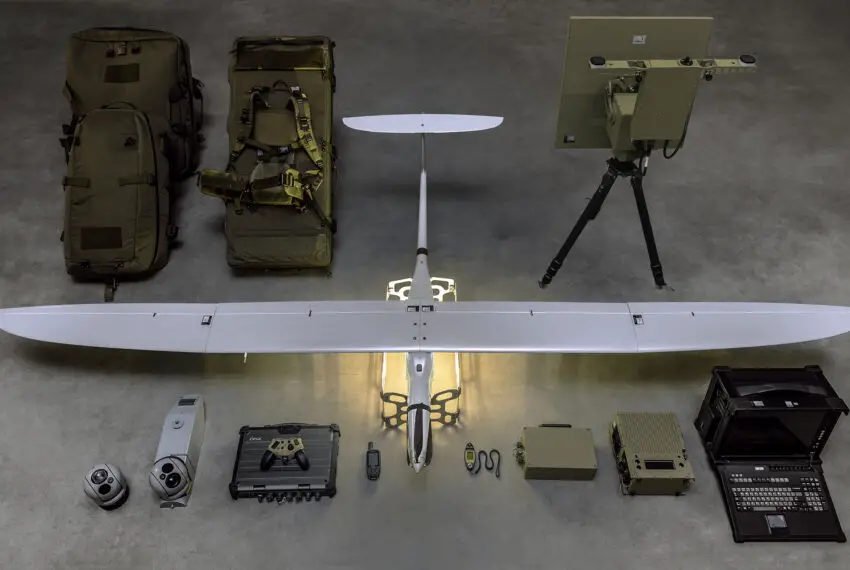The Polish defence procurement agency Agencja Uzbrojenia has entered into a contract with WB Electronics to procure a substantial number of FlyEye unmanned aircraft systems (UASs). The contract, announced at the International Defence Industry Exhibition MSPO 2023 in Kielce, Poland, underscores Poland’s commitment to modernizing its defense infrastructure and enhancing its interoperability with NATO countries. Global open-source intelligence company Janes reported that WB Electronics, previously delivered the first batch of third-generation FlyEye mini-UAVs to the Polish Armed Forces in December 2018. This latest contract represents a significant expansion of the FlyEye UAS fleet, with plans to deliver more than 400 FlyEye UAS systems over the coming years. Each FlyEye system comprises four FlyEye aerial vehicles and up to two control stations, making it a formidable asset for the Polish military.
The FlyEye UAS is a hand-launched, motor glider aircraft equipped with an electric motor. Its impressive specifications include a wingspan of 3.6 meters, a length of 1.8 meters, and an endurance exceeding 2.5 hours. Powered by lithium-polymer batteries, the electric engine provides a speed range of 50 km/h to 170 km/h and can operate at altitudes of up to 1,000 meters above the take-off point, with a maximum altitude above sea level of 4,000 meters. One of the standout features of the FlyEye UAS is its adaptability to varying weather conditions, as it can carry out missions in temperatures ranging from -20°C to 50°C and withstand wind speeds of up to 12 m/s. The UAS’s impressive endurance is further emphasized by an estimated standard lifespan of 300 missions, with tests demonstrating continuous flight durations of more than 18 hours under suitable conditions.

The FlyEye UAS is equipped with a comprehensive surveillance payload, including real-time video imagery capture and telemetric data recording capabilities. Its electro-optical (EO) payload, mounted beneath the fuselage, can be safely jettisoned using a parachute during landing, ensuring the preservation of valuable equipment. For effective control and communication, the FlyEye UAS employs a sophisticated system comprising ergonomic Ground Control Stations (GCSs), a mobile transceiver station, and a portable remote video terminal (RVT). These elements facilitate real-time communication, mission control, and data transmission between the UAS and its ground operators, operating within harmonized NATO military frequency bands. Moreover, the UAS is equipped with tactical and maritime antennas, along with an emergency location and recovery device based on GPS technology, enhancing its versatility and reliability in critical situations.
With this strategic procurement agreement and the deployment of the FlyEye UAS, Poland takes a significant step toward bolstering its defense capabilities, increasing its interoperability with NATO partners, and ensuring the safety and security of its nation. The framework agreement is set to extend until 2035, underlining the long-term commitment to strengthening Poland’s defense infrastructure.Furthermore, this procurement initiative aligns with Poland’s broader defense strategy, which aims to standardize equipment configurations and boost interoperability with NATO allies. The FlyEye UAS, with its advanced capabilities and robust performance metrics, is set to play a pivotal role in achieving these objectives. As the world watches, the FlyEye UAS is poised to become an indispensable asset in Poland’s defense arsenal, delivering enhanced situational awareness, surveillance capabilities, and mission endurance to protect and safeguard the nation’s interests.
















